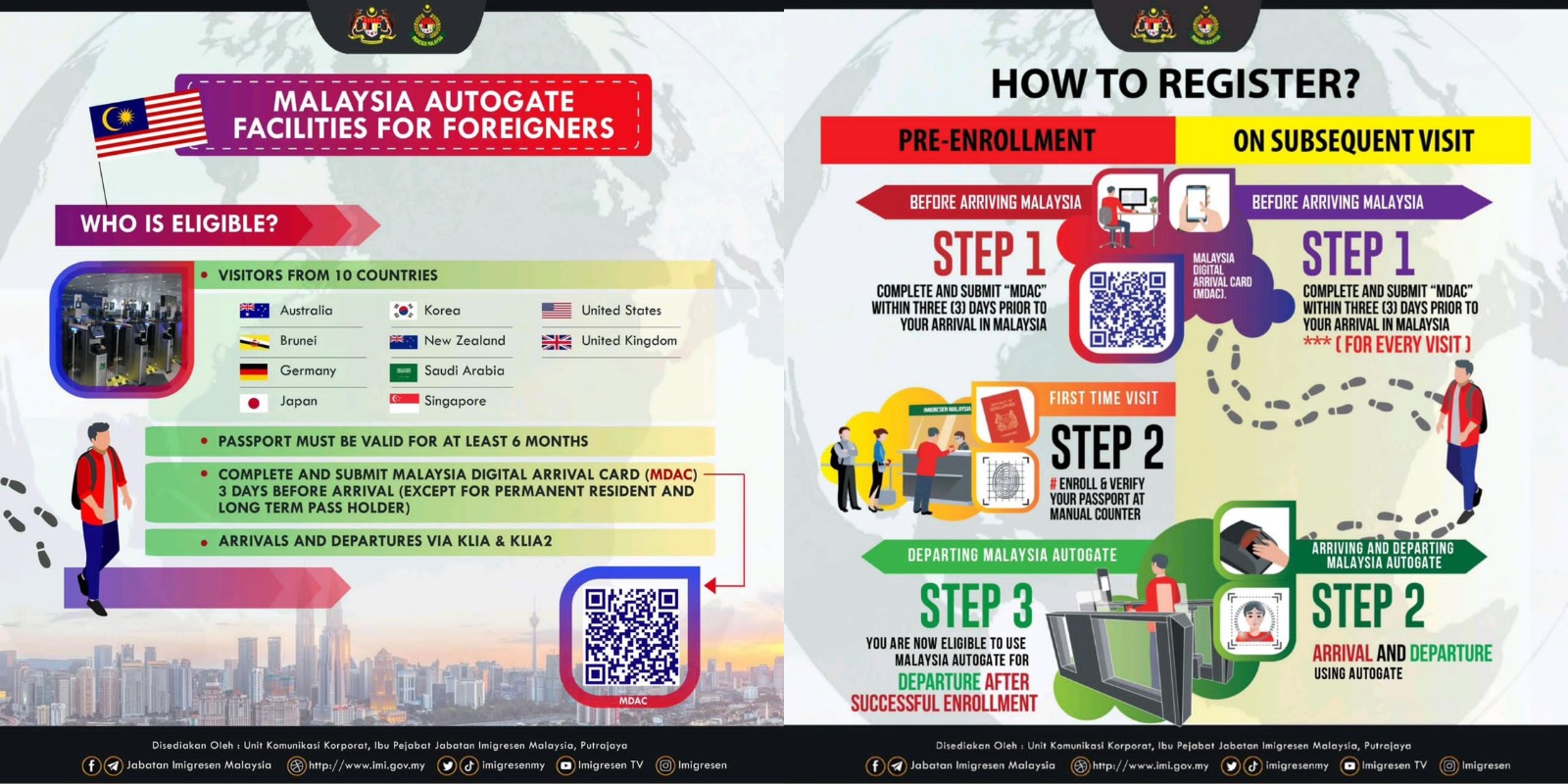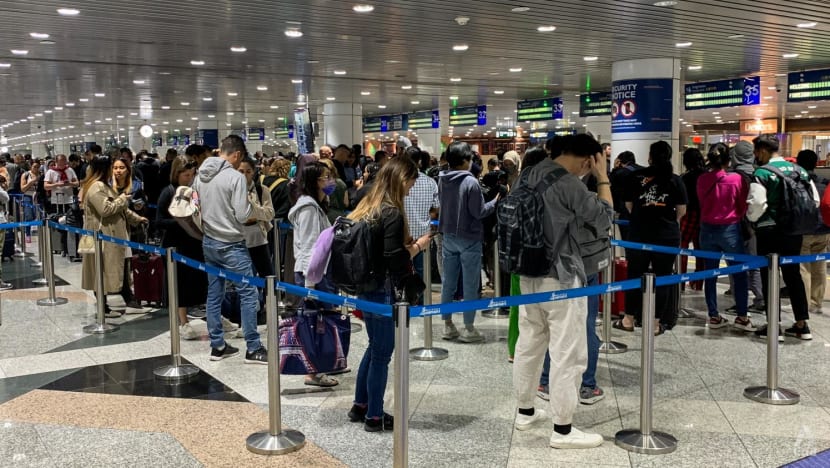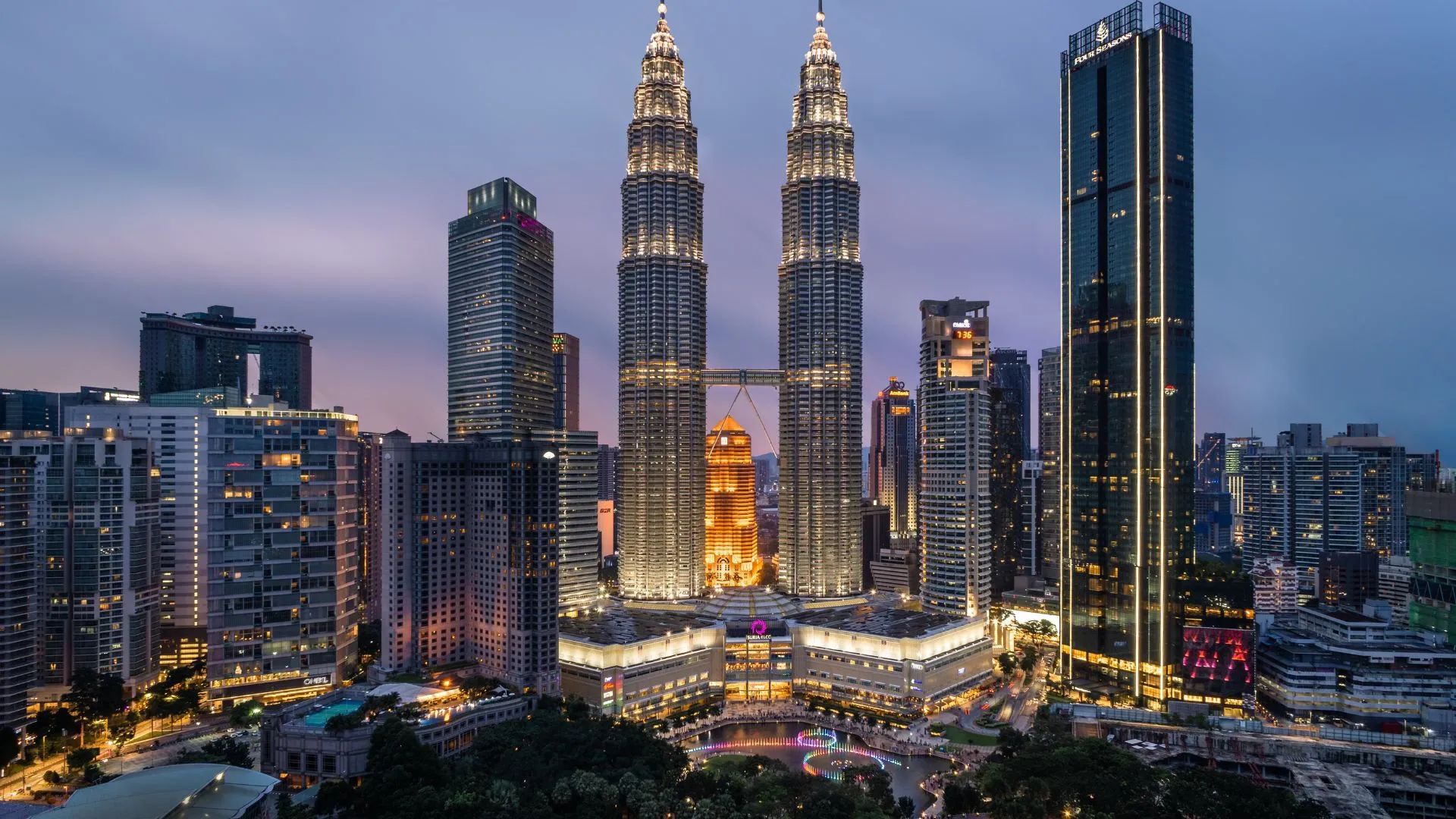The new initiatives have created some confusion, but authorities are hopeful that the ultimate result will be an increase in tourism visits coupled with enhanced security for the country.
This post has been updated.
Two different immigration-related initiatives have recently been enacted in Malaysia. One involves the resumption of filling out an arrival card upon arrival in Malaysia, but this time it’s digital. (Malaysia once had physical arrival cards, but these were abandoned years ago.) The other initiative is a year-long visa-free programme aimed at increasing tourism from selected countries.
DIGITAL ARRIVAL CARD NOW REQUIRED
Starting December 1, all foreigners traveling to Malaysia are required to complete the Malaysia Digital Arrival Card (MDAC) online at least three days prior to their arrival. This new regulation, announced by the Immigration Department of Malaysia, has the stated goal of streamlining the immigration process and enhancing security measures.
However, at a December 5 press conference, Home Minister Saifuddin Nasution said the three-day advance requirement wasn’t set in stone.
“They can still fill out the digital card once they get here because some visitors only know about this implementation upon arrival, so flexibility is given,” he explained.
On its website for the online registration of MDAC (which can be found at https://imigresen-online.imi.gov.my/mdac/main), the government said the requirement to submit MDAC before arriving in Malaysia applies to all travellers, except for three categories.
The three categories of travellers who do not have to submit the MDAC are those transiting or transferring through Singapore without seeking immigration clearance; Malaysian permanent residents; and Malaysian Automated Clearance System (MACS) Holders.

ARE EXPATS AND OTHER LONG-TERM PASS HOLDERS AFFECTED?
The information on the Immigration website suggests that other long-term pass holders, including Residence Pass-Talent, Employment Pass, MM2H visa, Spouse Visas, etc., will be subjected to the MDAC requirement, unless they are a MACS Holder. (According to Immigration, the MACS scheme is only for non-Malaysian daily travellers involved in the development of Iskandar Malaysia. For additional information about MACS, click here.)
However, contradicting this, Malaysia’s Home Minister Saifuddin Nasution clarified on December 5 that the MDAC would not be compulsory for those who travel to the country frequently – which he said includes Singaporeans and Malaysia long-term pass holders. This statement, contrary to the above, suggests that working expats and MM2Hers would not be required to complete the MDAC.
Specifically, the Home Minister stated that in addition to Singaporeans, the following would also be exempted from filling out the MDAC: holders of permanent Malaysian passports and Malaysian long-term passes, holders of Brunei common identification certificates (GCI) and Brunei Malaysia Frequent Traveller Facility, holders of Thai border passes, and Indonesian Cross-Border passes.
Hopefully, more firm clarification, preferably explicitly naming the pass categories exempted (e.g., Employment Passes, MM2H Visas, etc. ) will be forthcoming. (See below for latest update.)
For visitors, however, in addition to completing the MDAC, they are required to show their passports and the completed MDAC to immigration officers upon arrival in Malaysia. However, citizens from 10 countries –Australia, Brunei, Germany, Japan, South Korea, New Zealand, Saudi Arabia, Singapore, the United States, and the United Kingdom – have the added convenience of using autogates for immigration clearance at Kuala Lumpur International Airport’s Terminal 1 and Terminal 2.
To be eligible for autogate usage, these visitors must have a passport with at least six months of validity and must have submitted their MDAC three days before arrival. First-time visitors to Malaysia are not eligible to use the autogate; they must enroll and verify their passports at a manual counter during their first visit. Subsequent visits will allow for autogate use, provided the MDAC is submitted in advance for each trip.
According to Immigration, the changes reflect Malaysia’s commitment to modernising its border control processes while ensuring the safety and security of both travellers and residents.

VISA-FREE INITIATIVE
The Malaysian government has also introduced a 30-day visa-free entry programme, which they hope will spark a significant boost in tourism.
This visa-free entry programme, effective from December 1, extends to citizens from various countries including China, India, Türkiye, and several Middle Eastern nations.
Airlines and hoteliers were, perhaps unsurprisingly, quick to praise the initiative.
AirAsia responded by expanding its flight operations between Malaysia and both China and India. Tony Fernandes, CEO of Capital A, the parent company of AirAsia, commended the Malaysian government, particularly Prime Minister Dato’ Seri Anwar Ibrahim, for their forward-thinking initiative.
Fernandes said, “This is monumental news not only for AirAsia but for the country, and we extend our sincere gratitude to the Malaysian government for this forward-thinking approach. AirAsia has been actively working to simplify visits to Malaysia from India. The newly implemented 30-day visa-free entry for Indian citizens will undoubtedly provide a significant boost to Malaysia’s tourism and its economy, especially as we approach the upcoming peak travel season. As a pivotal player in the aviation sector, we are prepared to increase capacity to meet the demand for affordable and accessible air travel in the region.”
Meanwhile, the Malaysian Association of Hotel Owners, represented by its executive director, Shaharuddin M Saaid, has also embraced this policy, noting that as emphasis is placed on the key tourist markets for Malaysia, it underscores the importance of ample flights and seating capacities to accommodate the anticipated surge in tourists. They said this strategic approach is vital for the success of the upcoming Visit Malaysia Year 2026.
Shaharuddin also noted the necessity for well-coordinated travel infrastructure to effectively manage the expected influx of tourists. He believes that seamless travel arrangements are pivotal for the triumph of this initiative.

In Sabah, a prominent tourist destination in Malaysia, Chief Minister Hajiji Noor is optimistic that the visa-free entry for Chinese and Indian visitors will significantly contribute to the state’s tourism recovery. Sabah has already achieved 85.6% of its tourism target for the year.
The visa-free entry policy signifies not only a strategic move for the Malaysian tourism industry but also indicates the country’s commitment to becoming a more accessible and welcoming destination for international travellers. Time will tell how effective the new policy will be, but for now, tourism industry players are hoping they’ll benefit.
MDAC LATEST UPDATE (DECEMBER 6, 2023)
As reported above, the Malaysian Immigration Department announced in the media on Friday, December 1, that with immediate effect, all foreign nationals entering Malaysia must submit a digital arrival card to complete the Malaysia Digital Arrival Card (“MDAC”) online at least three (3) days prior to entering the country except for those transiting or transferring through Singapore without seeking immigration clearance, Malaysian permanent residents and Malaysian Automated Clearance System (MACS) holders. The application is applied online at https://imigresen-online.imi.gov.my/mdac/main
This understandably caused considerable confusion for foreign nationals holding an existing Malaysian-issued pass or foreign nationals entering Malaysia on pass approval letters as when applying for the MDAC, the applicant is required to insert a “Departure Date” – and of course, these applicants may not have any departure date from Malaysia confirmed, or even planned.
CLARIFICATION ON DECEMBER 6
The Immigration Department has since issued a post on social media and has clarified that the requirement for foreign nationals to obtain the MDAC will only be enforced on January 1, 2024. With that, all foreign nationals must complete the MDAC online at least three (3) days before entering the country EXCEPT for the following:
- Individuals transiting through Malaysia without seeking Immigration clearance;
- All citizens of Singapore;
- Holders of Diplomatic and Official Passports;
- Malaysian Permanent Residents;
- Malaysian Long-Term Pass Holders (e.g., holders of Employment Pass, Professional Visit Pass, Dependent Pass, Residence Pass-Talent, etc.)
- Malaysia Automated Clearance System (MACS) holders;
- Brunei Common Certificate of Identification (GCI) holders;
- Holders of Brunei Malaysia Frequent Traveler Facility;
- Thailand Border Pass Holder; and
- Indonesian Cross Border Pass (PLB) holders.
At the entry point in Malaysia, foreign nationals must show their passport and the completed MDAC to the immigration officers. If the foreign national is entering for work purposes, additional documents will need to be shown, such as the:
- Work pass approval letter
- Copy of the e-visa (if applicable) and
- The endorsement approval letter (if entering via KLIA1)
This latest update should allay any concerns by long-term pass holders that the new MDAC requirements will apply to them.
"ExpatGo welcomes and encourages comments, input, and divergent opinions. However, we kindly request that you use suitable language in your comments, and refrain from any sort of personal attack, hate speech, or disparaging rhetoric. Comments not in line with this are subject to removal from the site. "



















